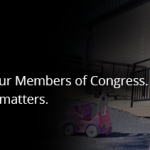
New Legislation Proposes Universal Child Care and Early Learning Programs
In a significant move towards supporting families and young children across the United States, a new bill titled the “Child Care for Every Community Act” (S. 2939) was introduced in the Senate on September 30, 2025. Spearheaded by Senator Elizabeth Warren, alongside co-sponsors including Senators Richard Blumenthal, Tina Smith, Cory Booker, Alex Padilla, Edward Markey, Jeff Merkley, Bernie Sanders, Ron Wyden, and Peter Welch, this legislation aims to establish universal child care and early learning programs. The bill has been referred to the Committee on Health, Education, Labor, and Pensions for further consideration.
Key Objectives of the Child Care for Every Community Act
The primary goal of S. 2939 is to ensure that all young children have access to comprehensive child care and early learning opportunities, regardless of their family’s circumstances. The legislation outlines several key purposes, including:
- Providing a fair and full opportunity for young children to reach their potential through universal, high-quality programs.
- Ensuring families can access affordable, high-quality child care and early learning options.
- Promoting school readiness by enhancing children’s cognitive, social, emotional, and physical development in supportive learning environments.
- Building on successful models such as the Head Start program and military child care initiatives.
- Encouraging community-level decision-making with active involvement from parents and local stakeholders.
Comprehensive Support and Accessibility
The bill proposes the creation of child care and early learning programs available to all children below the age of compulsory school attendance, without restrictions based on family income, disability status, citizenship, or employment circumstances. It emphasizes culturally, linguistically, and developmentally appropriate services, addressing the unique needs of diverse communities, including low-income families, children with disabilities, dual language learners, and those from migrant or seasonal farmworker backgrounds.
Funding and Implementation
To support the ambitious scope of this initiative, S. 2939 authorizes significant federal funding, with the federal share covering at least 90% of program costs for most children, and 100% for specific groups such as children of migrant and seasonal farmworkers and Native American children. The legislation also includes provisions for financial assistance to prime sponsors—entities like states, localities, and tribal organizations designated to administer these programs. Additionally, it allocates funds for administrative activities, training, and quality improvement, with a budget of $500 million annually from fiscal years 2026 through 2036 for specified activities.
Focus on Workforce and Quality Standards
A critical component of the bill is its emphasis on the child care workforce. It mandates competitive compensation for child care employees, aligning their pay with that of local educational agency staff or military child care program rates, ensuring a living wage. The legislation also establishes national program standards within 18 months of enactment, covering areas such as health, nutrition, social services, and educational outcomes to guarantee high-quality service delivery. Prime sponsors are required to meet accreditation standards within six years of receiving funding.
Community Engagement and Parental Involvement
The “Child Care for Every Community Act” prioritizes community and parental involvement by mandating the establishment of Child Care and Early Learning Advisory Councils to guide program implementation. It also ensures that decisions are made at the community level, with active participation from parents and local organizations, fostering a collaborative approach to child care and early learning.
Research and Evaluation for Continuous Improvement
The legislation includes provisions for ongoing research, demonstration, and evaluation to enhance program effectiveness. This includes studying child development processes, assessing program quality, and addressing disparities in early learning outcomes, particularly for underserved populations. The Secretary of Health and Human Services is tasked with submitting biennial reports to Congress on the status of participating children and program impacts.
Looking Ahead
The introduction of S. 2939 marks a pivotal step towards addressing the critical need for accessible and affordable child care in the United States. If enacted, this bill could transform the landscape of early childhood education, providing essential support to millions of families and laying a strong foundation for future generations. The full text of the bill can be accessed at https://www.govinfo.gov/app/details/BILLS-119s2939is.
As this legislation progresses through the Senate Committee on Health, Education, Labor, and Pensions, it will undoubtedly spark robust discussion on the role of government in ensuring universal access to child care and early learning. Stakeholders, educators, and families alike will be watching closely to see how this ambitious proposal unfolds.





